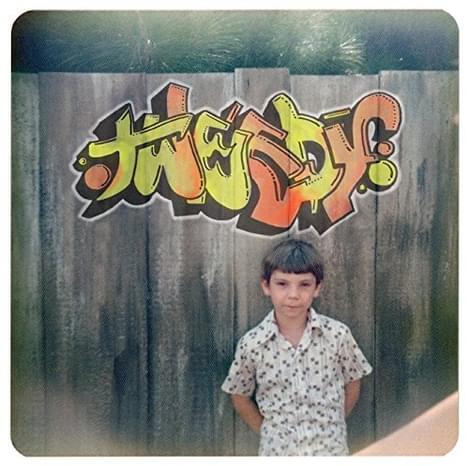Tweedy - Sukierae
"Sukierae"

The element of surprise is a welcome twist, as - to be perfectly honest - Wilco has become a tad too consistent for their own good in recent years. Starting with Being There, 1996's epic, awesomely accomplished ode to American music traditions, and culminating with the fractured unease of 2002's Yankee Hotel Foxtrot and the white-heat tension and broke-down balladry of 2004's A Ghost Is Born, the latter two recorded amidst inter-band turmoil and personal problems, the band moved restlessly onwards, upwards and, if it served the music, sideways, deeper into the darkness and detritus of the ditches. Having delivered the ultimate statement on the explosive potential of their first long-term line-up (which remains stable to this day) on 2005's astounding live opus Kicking Television, Wilco then settled into a perfectly pleasant groove which has at times threatened to turn into a bit of a rut. The odd highlight and 2011's promisingly vibrant The Whole Love aside, recent works have brought to mind a fearsome flying beast kept grounded by material that's just a bit too keen to revisit previously charted musical terrain. Meanwhile, Tweedy's once almost worryingly raw songs have risked becoming so elliptical they might as well be about nothing (which they almost certainly aren't); the quote one of the band's big-hitters (‘"Can’t Stand It" from Summer Teeth), "speakers speaking in code."
About as far from a feckless vanity project or the kind of pointless 'more of the same, only less so' exercise that solo 'projects' all too often translate into as we're ever likely to get, the by turns warm, wise and reassuringly weird Sukierae (at 20 tracks, the length of a classic 2-LP double album) is an invigorating breath of fresh air in an enterprise that had been toying with becoming slightly stale. We get very little of the kind of hushed acoustic balladry you might expect when the phrases 'songwriter' and 'solo album' are put together (the bits we do get, particularly the beautifully exhausted "Pigeons" and the Bob Dylan-esque "Fake Fur Coat", are sublime). It's a richly textured album with no shortage of arresting detail; for example, I spotted a hitherto hidden reference to the guitar squeals of Can's "Mother Sky" during the 20th or so listen amidst the abstractions of 'Diamond Light Pt. 1'.
Throughout the album, Tweedy obviously relishes showcasing what he can do with his extensive guitar arsenal and some judicious multi-tracking. Tweedy's return to active bass duty for the first time since the long-gone days of alt. country pioneers Uncle Tupelo, meanwhile, aided and abetted by Tweedy Jr's versatile drumming (Spencer Tweedy's most definitely not on the record due to some ill-advised act of nepotism: the 18-year old is a remarkably potent percussionist) adds a tasty dollop of loose-limbed, earthy funkiness to the proceedings. For evidence, check out the hypnotic groove of "Slow Love", or the combination of a tight bass riff (more than a bit reminiscent of Aaron Neville's "Hercules") and Led Zeppelin-touched pounding on "World Away", which also manages to cram in some loving rip-offs of Jimmy Page's guitar phrasings without ever losing sight of the song's strong melody.
Sukierae somehow manages to cram in all this rich musicality whilst remaining sparse and stripped-down in a way that places the spotlight unflinchingly on the songs. The material is easily up to the challenging task of withholding such a relentless glare: the album contains some of Tweedy's most direct, affecting and heartfelt tunes for a long time. It's almost as if the record distils the best parts of the various past incarnations of Wilco and then twists the often well-worn ingredients into fresh, compelling shapes, resulting in an album that simultaneously reassuringly familiar and excitingly alien. The wistful waltz-time lullaby "Wait For Love" packs a straightforward yearning we've not really encountered since the melodically endowed days of Being There, whilst the frazzled mournfulness of 'Nobody Dies Anymore' (inspired by gun crime that's plaguing Chicago) looks back at the fractured unease of Wilco's early 2000's peak but pares back the full band's oomph and dynamics so that the song's unfathomable but unquestionable power becomes plainer to see. At the opposite end of the emotional scale, the resistance-battering 'Low Key' and sun-baked "Summer Noon" revisit the ripe power-pop of 1999's Summer Teeth.
As the generously portioned album progresses, the shadows roll in. Recorded as - but often written well before - Tweedy's wife (and Spencer Tweedy's mother) was diagnosed with a potentially life-threatening illness, Sukierae is frequently a haunted and haunting record, with seemingly innocent lines (such as "I want to see you grow old and dumb" on the desolately drifting "Where My Love") taking on an unexpected gravitas. The last quarter of the roll drifts gradually deeper into the darkness, culminating in the spellbinding 'I'll Never Know', Tweedy's moving, mysterious reminiscence of watching late night TV with his late mother. The dictionary definition of 'intimate' doesn't come close to expressing the hypnotic, stark nearness of this hushed performance.
Granted, not all of the tracks reach the generally excellent average standard: the gonzo-punk opener "Please Don't Let Me Be So Misunderstood" certainly seems to be in the wrong company. Even so, if you tried to work out which tracks to leave out, you'd probably end up keeping the lot. A rare album in the sense that its maker(s) seem to be having too many ideas, all of which are at the very least good, Sukierae’s the kind of a record where almost every listen provides different favourite moments. That has to be a very good indicator of its overall merits.
Get the Best Fit take on the week in music direct to your inbox every Friday

Halsey
The Great Impersonator

Elias Rønnenfelt
Heavy Glory

Mount Eerie
Night Palace





